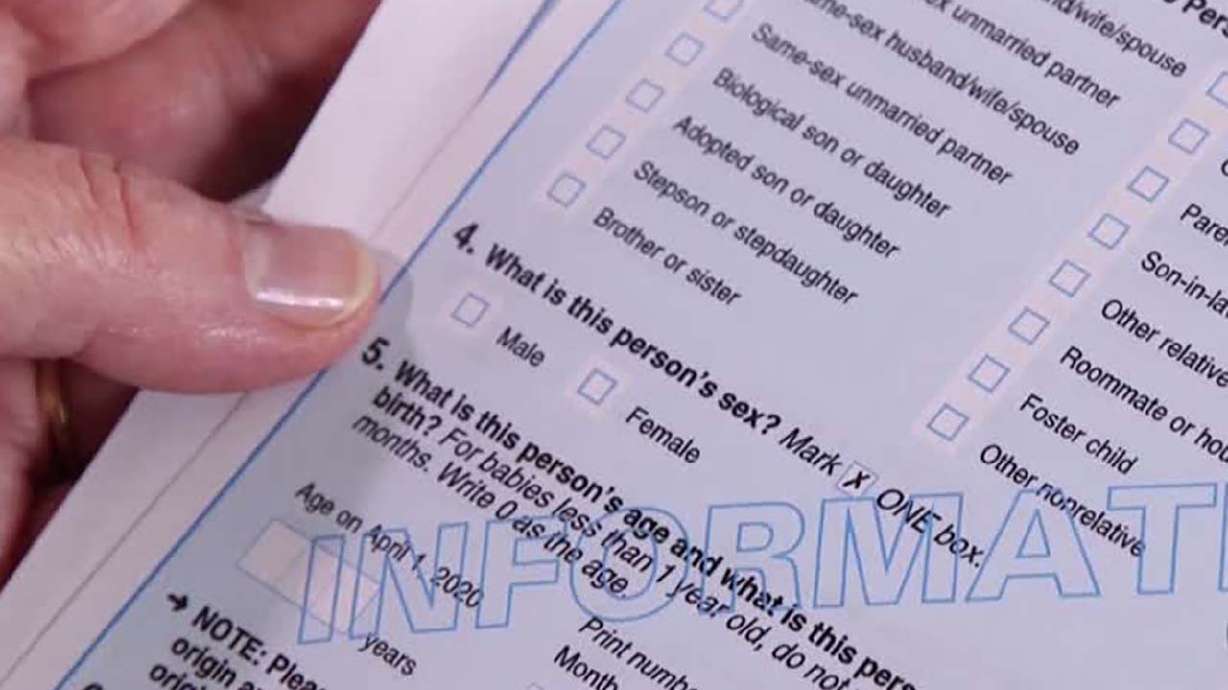Estimated read time: 4-5 minutes
This archived news story is available only for your personal, non-commercial use. Information in the story may be outdated or superseded by additional information. Reading or replaying the story in its archived form does not constitute a republication of the story.
SALT LAKE CITY — A Trump administration effort to not count undocumented U.S. residents “will disadvantage communities like West Valley City and Salt Lake City“ by reducing their representation and access to federal funding, a Utah demographer says.
President Donald Trump signed a memorandum Tuesday that seeks to bar people in the U.S. illegally from being counted in congressional reapportionment, a move that drew swift criticism nationally and in Utah, along with promises of court challenges.
Trump said that including people who are in the country illegally in the apportionment process “would create perverse incentives and undermine our system of government.”
Reapportionment is the process for redistributing seats in the U.S. House of Representatives based on changes in population found in each decennial census.
The Beehive State is home to roughly 95,000 undocumented Utahns, according to Pew Research Center estimates based on 2016 data, the most recent available.
Excluding them from redistricting would diminish representation for Utah’s most diverse neighborhoods in Congress and local government, said Pamela Perlich, director of demographic research at the University of Utah’s Kem C. Gardner Policy Institute. She said those same communities, largely Hispanic and in Salt Lake County, have been hardest hit by the pandemic.
“It will just pile more disadvantage on those already disproportionately impacted communities that are already struggling with access to health care and having households on a very fragile financial footing,” Perlich said. “It will disadvantage communities like West Valley City and Salt Lake City, and also places that have large immigrant populations working in food processing or construction or agriculture throughout the state.”
The census, she added, is “the very bedrock of political representation.”
Dale Ho, director of the ACLU’s Voting Rights Project, predicted Trump’s latest effort also would be found unconstitutional by the courts.
“The Constitution requires that everyone in the U.S. be counted in the census,” Ho said. “President Trump can’t pick and choose. He tried to add a citizenship question to the census and lost in the Supreme Court ... We will see him in court, and win again.”
Trump’s latest move comes in the lead-up to the November election.
“There used to be a time when you could proudly declare, ‘I am a citizen of the United States.’ But now, the radical left is trying to erase the existence of this concept and conceal the number of illegal aliens in our country,” Trump said in a statement. “This is all part of a broader left-wing effort to erode the rights of Americans citizens, and I will not stand for it.”
Two-thirds of Utah households have already responded to the census, with the majority doing it online.
Trump’s efforts to add the citizenship question drew fury and backlash from critics who alleged that it was intended to discourage participation in the nation’s head count, not only by people living in the country illegally but also by citizens who fear that participating would expose noncitizen family members to repercussions.
In Salt Lake County, “we’re just barely beginning to overcome that, so this is of great concern,” said Ze Xiao, the director of the county’s Office for New Americans who is on a committee working to make sure as many as possible participate in the count.
Marti Woolford, a county special projects coordinator working on the same effort, agreed.
“It’s been a constant effort to try to build that trust, and each time one of these orders comes out, people feel it’s the best option not to give information to the government,” Woolford said.
The communities at risk of an undercount — home to many frontline workers — may need greater services down the road like affordable housing or subsidized preschool for their kids, especially if they lose work, Woolford said. But if too few are counted, local planning and federal money won’t match the need, eventually stretching resources thin, Woolford said.
The financial and political stakes in the 2020 Census are huge, with Democratic-leaning metropolitan areas with large immigrant populations worried about losing dollars and political representation.
In Alabama, state officials and Republican U.S. Congressman Mo Brooks are suing the Census Bureau to exclude people in the country illegally from being counted when determining congressional seats for each state.
Trump’s memo seeks to dilute the voice of Hispanic people and those undocumented in the U.S., said Rebecca Chavez-Houck, a former Democratic state lawmaker from Salt Lake City.
“This is obviously an attempt to score political points at a time when the president has shown he’s ill-equipped to run the country,” Chavez-Houck said.
The memo ignores the contributions of undocumented Utahns and their families, she said, sending the message that “you’re here, you’re contributing to the community, you’re providing resources to me as a member of our economic machine, but you have no voice in how our policy decisions are made that affect you because you live in this community.”









